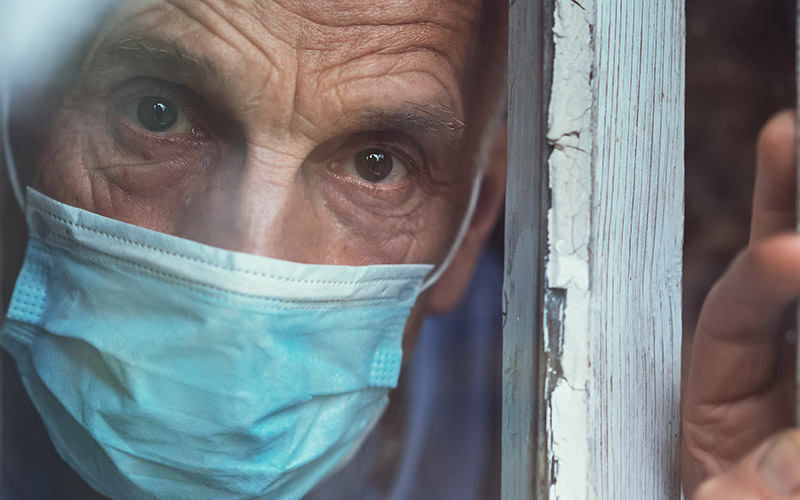From SkilledNursingNewsom —
The two U.S. senators who last year released a “secret” list of nursing homes under consideration for inclusion on a formal list of facilities with major quality issues are now calling for expanded oversight of poorly performing skilled nursing facilities in the wake of the COVID-19 pandemic.
Sens. Pat Toomey and Bob Casey, both of Pennsylvania, last June released a list of more than 400 nursing homes considered candidates for the Centers for Medicare & Medicaid Services’s (CMS) Special Focus Facilities (SFF) program in June of last year.
On Nov. 17, the bipartisan pair — Toomey is a Republican, Casey a Democrat — announced a bill that would expand the SFF program, ensuring that all candidate facilities would receive “additional oversight and enforcement, as well as technical assistance and educational programming,” according to a press release and summary of the legislation.
The Nursing Home Reform Modernization Act of 2020 would also set up “an independent Advisory Council” to provide recommendations on quality improvements to the Department of Health and Human Services (HHS). Based on the recommendations of this council, HHS would be required to set up a data-driven process to rank nursing homes from low to high based on performance.
The bill would also implement an icon on the CMS Nursing Home Compare tool to “publicly indicate nursing homes identified as high-rated and establish a process for suspending a nursing home’s high-rated status, if warranted.”
CMS already includes a warning icon for facilities with abuse citations on Nursing Home Compare. Launched last year, the move affected less than 5% of SNFs, but the federal government’s decision to flag certain properties with a specific icon on the consumer-focused resource drew strong industry opposition.
The erstwhile “secret” released last year by Toomey and Casey revealed that though 88 of roughly 15,700 nursing homes in the U.S. were placed on the SFF list, an additional 435 were listed as possible candidates, with no designation as such on Nursing Home Compare.
“While the vast majority of nursing homes provide high-quality care, there are some that are consistently failing to meet objective standards of adequacy,” Toomey said in a statement at the time. “To date, CMS has arbitrarily excluded from public disclosure a subset of these underperforming nursing homes. Moving forward, I hope CMS will give the public this particular list, as well as all relevant information about nursing home quality.”
CMS now releases a monthly update of the candidates along with the members of the SFF roster. Facilities flagged for inclusion on the actual SFF list must submit to full on-site health inspections every six months, with punishments — including fines and threats of Medicare eligibility denial — intended to improve care.
Properties can either “graduate” from the list by demonstrating improvement, or be terminated from the Medicare program entirely due to continued problems; CMS then replaces the open slot on the SFF from the candidate list.
The federal government has positioned the SFF system as a way to solve the regulatory problem of how to deal with persistently underperforming nursing homes.
“Although such nursing homes may periodically institute enough improvements to correct problems identified on one inspection, significant problems would often re-surface by the time of the next inspection,” CMS noted. “Such facilities with a ‘yo-yo’ or ‘in and out’ compliance history rarely address underlying systemic problems that give rise to repeated cycles of serious deficiencies, which pose risks to residents’ health and safety.”
The bill proposed by Casey and Toomey would make several changes to the SFF program, including renaming it as the “Low-Rated Facility Program.” Other changes include:
- Requiring that no fewer than 3.5% of the lowest-rated SNFs participate in the program
- Establishing on-site consultation and education for these facilities
- Codifying enforcement elements, such as progressive enforcement actions and a requirement of improvement before graduating the program
- Reinvesting Civil Monetary Penalties (CMPs) to foster improvement for program participants
In addition, the bill would also require the Government Accountability Office to study the program.
The bill comes amid generally heightened scrutiny of nursing home conditions in the wake of the havoc wreaked by the COVID-19 pandemic.
“Unfortunately, some of the largest outbreaks occurred in facilities with records of persistent failure to protect their residents,” Toomey said in the press release announcing the legislation. “This new bipartisan legislation will provide greater oversight and resources to systemically underperforming nursing homes. The Senate should pass this bill without delay.”
Casey made a similar argument in the release, noting the death toll among both long-term care residents and workers as a result of the pandemic.
“We have an imperative to help nursing homes residents and workers amid this public health crisis, and we must also improve care quality in nursing facilities—especially those that have a consistent pattern of failing safety and care standards,” he said. “We have an obligation to these residents and workers to curb the rapid spread of COVID-19 and keep them safe. I urge my colleagues to pass this bipartisan bill immediately.”
…
Continue reading at SkilledNursingNews.com

